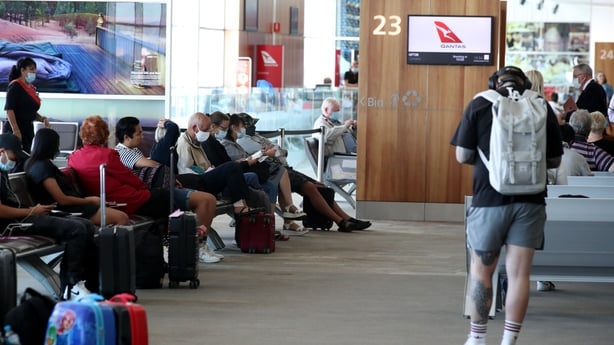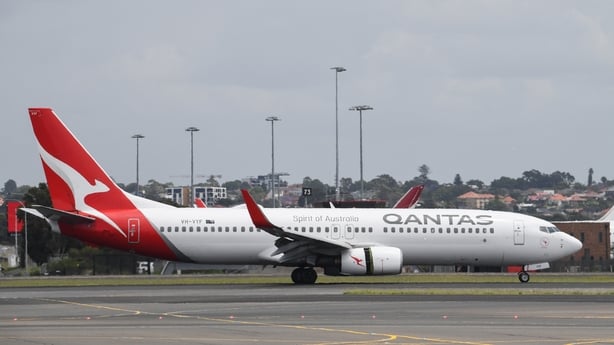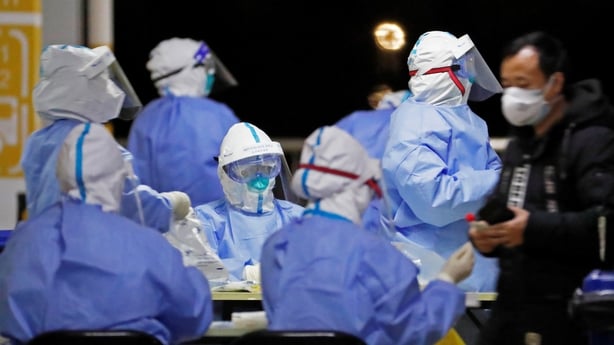Sweden's healthcare watchdog has issued a stinging condemnation of the way elderly people in the country have been treated in care homes during the coronavirus pandemic, noting that some patients were left to die without a medical exam.
The Health and Social Care Inspectorate (IVO) said the "serious flaws" could not only be blamed on the pandemic, concluding they existed even when the added stress of the virus outbreak was taken into account.
Of the 6,500 deaths linked to Covid-19 in Sweden, nearly half have occurred at elderly care homes and a quarter have been elderly people being cared for at home.
In an audit of care facilities during the period from March to June, IVO noted that a fifth of all coronavirus patients in care homes had not been individually assessed by a doctor, and in 40% of those cases the patient was not examined by a nurse either.
In those cases where an assessment was made, the majority were made over the phone, and fewer than 10% of patients received a physical examination.
"The minimum level (of care) is simply too low, even during a pandemic," IVO director Sofia Wallstrom told a press conference.
The agency concluded that elderly residents at care facilities had not received adequate care in either confirmed or suspected cases of coronavirus.
IVO also said its study of elderly care had been hampered by inadequate patient records.
Sweden's high number of deaths in elderly care has been hotly debated in the country, which has long prided itself on its cradle-to-grave welfare system.
The country also never locked down to the same extent other European countries did.
While polls have shown widespread support for the strategy, it has also been controversial, especially as its death toll soared above those in neighbouring countries.
One of Sweden's tougher measures was a nationwide ban on visits to nursing homes, imposed on 1 April.
The measure was lifted on 1 October, but last week the government paved the way for local restrictions.
A country of 10.3 million people, Sweden has recorded a total of 225,560 cases of Covid-19 and 6,500 deaths.
Spain's elderly first in line for Covid-19 vaccine
Elderly care home residents and those looking after them will be first to be vaccinated when Spain begins its national immunisation programme early next year, the government said.
Assuming the vaccines are approved and stocks are available, the Spanish government will begin vaccinating its 47 million population in January, with healthcare workers and other elderly people next in line.
Under terms of an ambitious plan presented to the cabinet today, Spain is aiming to have a large part of the population immunised by mid-2021.
"In the first stage, we will focus on the most vulnerable, a group of around 2.5 million people," Health Minister Salvador Illa told a news conference.
"It will be a free vaccine which will be administered through the national health system" and receiving it "will be voluntary."
Qantas to require Covid vaccine on international flights
International travellers will need to be vaccinated against Covid-19 to fly with Australia's Qantas, the company has said, the first major airline to suggest that such rules could become common across the industry.
Qantas CEO Alan Joyce said the airline would implement the measure once a coronavirus vaccine was made available to the public.

"We are looking at changing our terms and conditions to say for international travellers that we will ask people to have a vaccination before they can get on the aircraft," the Dublin-born CEO told Channel Nine television.
"Whether you need that domestically, we will have to see what happens with Covid-19 in the market but certainly, for international visitors coming out (to Australia) and people leaving the country, we think that is a necessity."
Mr Joyce predicted the rule would likely become standard practice around the world as governments and airlines currently consider the introduction of electronic vaccination passports.
Vaccination entry requirements are already widely used around the world, with many countries demanding travellers show they have been inoculated against yellow fever if they are coming from regions where the disease is endemic.

The International Air Transport Association (IATA) announced it was in the "final stages" of developing a digital health pass that it says can be used to record Covid-19 tests or vaccinations and will "support the safe reopening of borders".
"We are bringing this to market in the coming months to also meet the needs of the various travel bubbles and public health corridors that are starting operation," IATA director general and CEO Alexandre de Juniac said.
Meanwhile, Australia's Victoria state announced its last coronavirus patient had been cleared of Covid-19 - a major milestone for what had been the epicentre of the country's second wave.
An outbreak in Melbourne, Victoria's capital, sent Australia's second-biggest city into a strict months-long lockdown, with residents subject to a curfew and mandatory mask rules.
Authorities have now reversed the toughest of the restrictions and other states have begun reopening their borders to Victoria, with New South Wales the first to do so yesterday.
Hundreds of flights cancelled as Shanghai tackles virus outbreak
Hundreds of flights at one of China's busiest airports were cancelled today as Shanghai raced to bring a local coronavirus outbreak under control.
Health officials have tested thousands of staff at Pudong International Airport since a small cluster of Covid-19 cases in the city was linked to several cargo handlers.
China, where the virus first emerged late last year, has largely brought the pandemic under control through travel restrictions and lockdowns, but it is now battling a number of domestic outbreaks in different cities.
Shanghai has reported seven local infections linked to the airport this month, with most cases found in the past few days.

The outbreak has sparked plans to give high-risk workers at the travel hub an experimental vaccine China has already been providing to state employees, international students and essential workers heading abroad since July.
Figures from data services firm VariFlight showed that over 500 flights out of Pudong Airport had been called off, nearly half the day's scheduled flights.
Almost half of scheduled inbound flights were also cancelled.
More than 17,700 people had been swabbed by yesterday morning at part of a drive to test airport cargo staff, state news agency Xinhua reported, with those infected including employees at logistics firms FedEx and UPS.
Nearly half of all scheduled flights were also cancelled at Tianjin International Airport, a northern port city testing around 2.6 million people to try to bring a local cluster under control.
Tianjin reported five local cases on Saturday and another today.
China has been rolling out mass-screening campaigns in response to the emergence of local Covid-19 cases, in some instances collecting test samples from entire districts or cities.
Authorities have in recent days shifted their focus to imported frozen food and other inbound shipments, which have been blamed for a resurgence of local infections.

